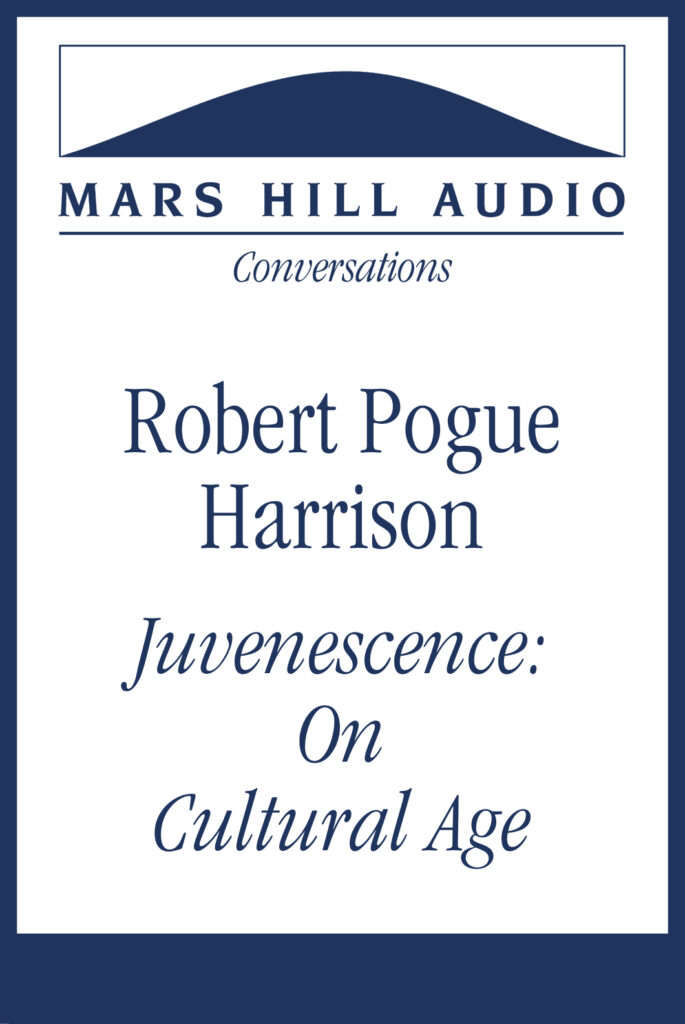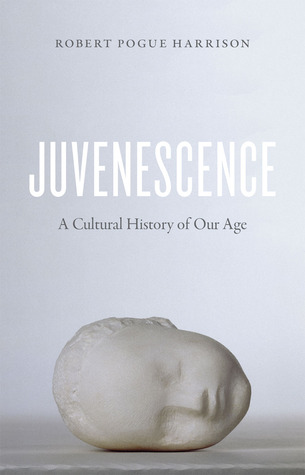released 11/19/2019
Cultural critic and professor of Italian literature, Robert Pogue Harrison, examines the conditions in which cultural transmission can take place. In his book, Juvenescence: A Cultural History of Our Age, Harrison argues that Western culture is on the cusp of a new mode of civilization that can either result in a rejuvenation of the legacies of the past or in their juvenilization, the latter of which would lead to a loss of cultural memory and the infantilization of desires. A culture undergoing juvenescence, when it is going in the direction of juvenilization, is at risk of both cultural amnesia and orphanhood. Harrison reflects not only upon the ways in which our culture is evolving into a younger way of being human, but also upon the peculiar and precious qualities of youth that are uniquely receptive to fostering the amor mundi needed to preserve and transmit a world of permanence and belonging.
(47 minutes)
PREVIEW
The player for the full version of this Conversation is only available to current members or listeners with a legacy account. If you have an active membership, log in here. If you’d like to become a member — with access to all our audio programs — sign up here.
“This is one of the huge issues: is the present comprehensible from the perspective of the past? And if the answer is no, then the inverse is also true: namely, the past becomes incomprehensible from the perspective of the present. Now when the ages become incomprehensible to each other, then we lose continuity and we’re in a mode of rupture, and that’s what it means to be orphaned.”
—Robert Pogue Harrison
Related reading and listening
- David Martin on what happened in the 1960s — David Martin talks about how the cultural shifts of the 1960s were the fruition of previous changes in the 1890s and 1930s. (17 minutes)
- Recovering the meaning of “faith” — Andrew Root asserts that a Church co-opted by the ethics of “authenticity” has lost its ability to speak of the transcendent and its understanding of what it means to be in Christ. (18 minutes)
- Mars Hill Audio Journal, Volume 129 — FEATURED GUESTS:
Nicholas Carr, Robert Pogue Harrison, R. J. Snell, Norman Wirzba, Philip Zaleski, Carol Zaleski, and Peter Phillips
- Transforming the world into an orphanage — Robert Pogue Harrison on the tragedy of our systemic callowness
- Mars Hill Audio Journal, Volume 115 — FEATURED GUESTS: Arlie Russell Hochschild, Andrew Davison, Adrian Pabst, Gary Colledge, Linda Lewis, and Thomas Bergler
- Mars Hill Audio Journal, Volume 94 — FEATURED GUESTS: Maggie Jackson, Mark Bauerlein, Tim Clydesdale, Andy Crouch, and Jeremy Begbie
- Mars Hill Audio Journal, Volume 75 — FEATURED GUESTS: Mark Malvasi, John Lukacs, Steve Talbott, Christian Smith, Eugene Peterson, and Rolland Hein
- Mars Hill Audio Journal, Volume 68 — FEATURED GUESTS: Murray Milner, Jr., Steven C. Vryhof, Douglas J. Schuurman, Robert Gagnon, Richard Stivers, and Quentin Schultze
- Manners and the Civil Society — Four essayists reflect on the relationship between manners and morals, and address the way in which the survival of a democratic society depends upon its citizens’ respect for one another. (90 minutes)
- Youth Culture & the Church — Mardi Keyes explains how modern assumptions about adolescence differ from a biblical understanding of human development, and Mark DeVries discusses family-based youth ministry. (74 minutes)

